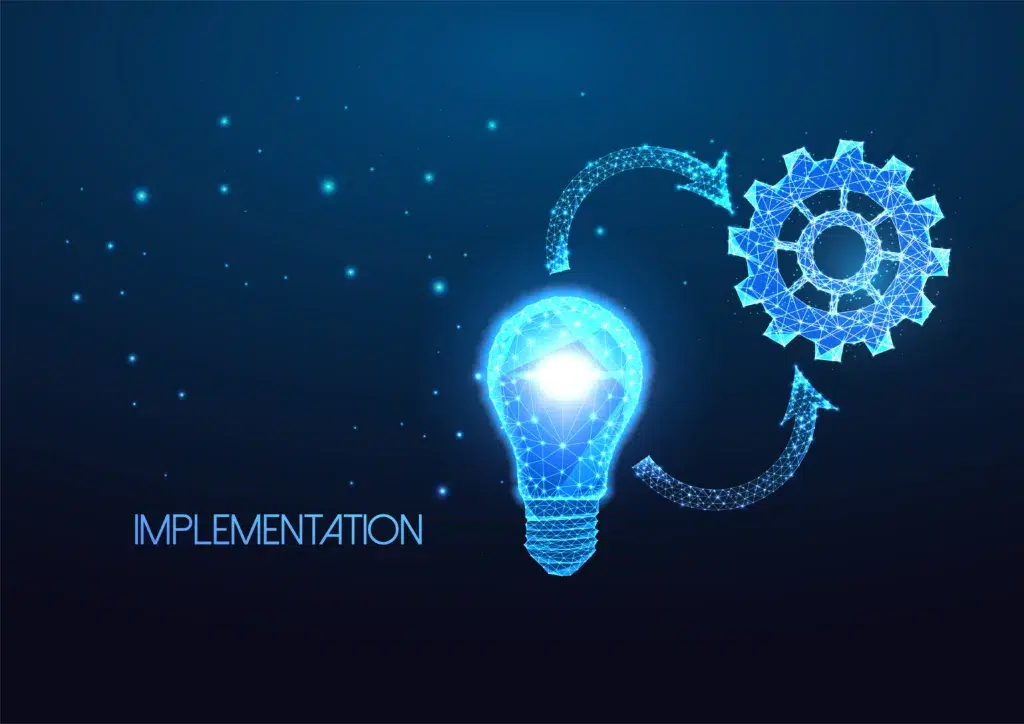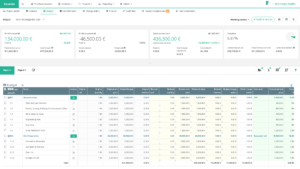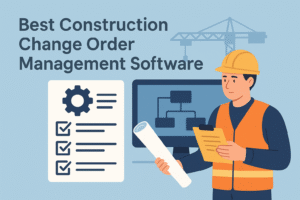Implementation of a new software might be a hard and long-lasting process, especially when not following best practices. And when it comes to the implementation of a Construction Management software, you need to have in mind even more factors that can affect the implementation process. For example, the timing and seasoning play a significant role while there is a high season and low season in Construction. Functionality scope, different needs of your team members are also questions that you need to deal with. In this article, we will share 5 tips on how to implement Construction Management software and make this process smooth and successful.
Table of Contents
1. Do not try to do everything at once. Understand your company most important needs and split the implementation into parts
It is common that peoples think that more complex and more expensive software is, better it is. In fact, not rarely, it can be exactly the opposite. Large scale and highly complex software implementation is riskier, takes longer, peoples hardly learn it, and what is most disappointing – a significant number of functions remains not used. Think of your own experience – how much software functions do you usually use? For sure, it depends, but usually, we stock on some reasonable amount of main features. So how to apply these principles while implementing software in a quite complex construction business with many processes? Well, how you would eat the elephant? Peace by pease, right? So, first of all, decide what the most important and critical needs/functions in your construction company are. And implement only these main functions in the beginning. Do it with Agile principles, step by step, piece by piece. Sometimes it can even mean to implement several different software solutions that does exactly what you need now and in the amount that you can “eat” at once. Remember the 20/80 rule, 20% from the construction system will give 80% of effects. Try to do less and implement your new tool peace by peace, and you will avoid high scale failures.
2. Choose the right timing and don’t try to transfer the full history
In construction, there are low and high seasons when people are the busiest. For e.g. in the summertime, the project team has the most active period and in the wintertime, people are on vacations. The time is never right for all people, but you can still choose the most suitable time if you plan it in advance. When trying to implement new software during the highest season, it might be a fast way to failure. A poorly executed process will not give expected results. Another challenge is to try to transfer all historical data to the new system before starting. This is one reason why people procrastinate, while the idea of manually transferring past information seems to be a significant amount of work. Instead, you can start using the new Construction tool with new beginning projects and projects that will not end soon. This way has some disadvantages either, but much more advantages and saves time and your money also.
3. Choose the Product owner
A product owner is a person who is personally responsible for the implementation of the new Construction Management Software. The best person would be someone who understands not only the software but also knows the business and the needs from different roles in the company. A product owner should communicate with the software provider and help the internal team with questions and problem-solving. Also, many times we have seen that too many people are involved in making the decision on how to use the new tool. Too many different opinions create delays and to organize a meeting with the full team can be “Mission Impossible.” This doesn’t mean that you should not rely on Project managers opinion or exclude them from the process, that would be a mistake. It only means, that best practice is to have a manageable project team for the Implementation and a great balance between actual need and nice to have ideas. A suitable product owner should be able to manage all these challenges.
4. Agree on a process and stick to it
Often you can use one software product in multiple ways. If you have found your best way during implementation, agree with the team, write it down, and stick to it. To adopt a unified process can be a bit harder for existing employees, but it will be much faster to teach new employees and makes life easier in the end. Even the management meetings will be smoother while everyone is working on the same process and speak the “same language”. After implementation of new software, take time to review how people are using the Software solution and if they are not using it as agreed, talk to them. Try to find out why they are not using it as agreed, do they have different need or expectation or they just don’t know how to use it. The success of implementation depends on how effectively software is used in a daily life.
5. Be consistent
One of the most crucial thing when implementing a new Construction management solution is to be consistent and push it until everyone on your team gets it. People are used to their old habits; change is not easy for them and sometimes even scary. We all feel that the “old good way” was better and more comfortable and we often don’t have enough time to learn something new. Usually, none of the software is built to make someone’s life harder, or at least it shouldn’t be this way. It’s just a very human, that to get used to a new way of doing things is a difficult task for our brain until it becomes a habit. So be consistent until everyone feels it as a habit, then you can say that your implementation project was successful.
About the Author

Mikk Ilumaa
Mikk Ilumaa is the CEO of Bauwise, a leader in construction financial management software with over ten years of experience in the construction software industry. At the helm of Bauwise, Mikk leverages his extensive background in developing construction management solutions to drive innovation and efficiency. His commitment to enhancing the construction process through technology makes him a pivotal figure in the industry, guiding Bauwise toward setting new standards in construction financial management. View profile






